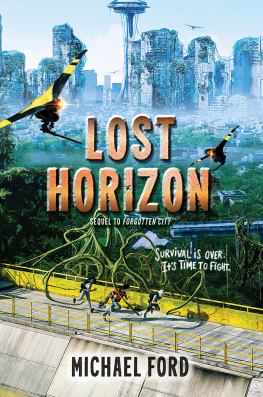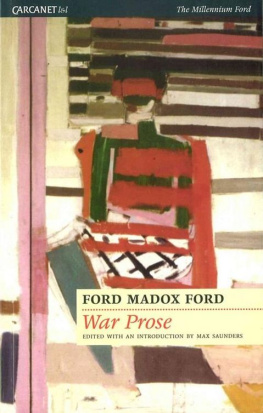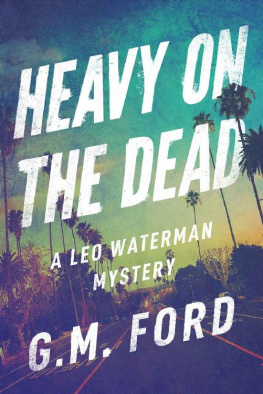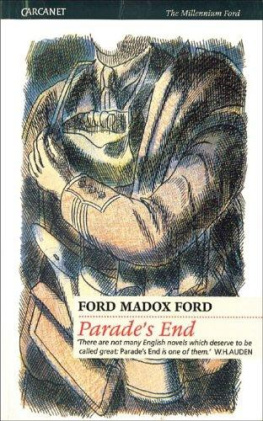Michael Ford - The Ten Thousand
Here you can read online Michael Ford - The Ten Thousand full text of the book (entire story) in english for free. Download pdf and epub, get meaning, cover and reviews about this ebook. genre: Adventure. Description of the work, (preface) as well as reviews are available. Best literature library LitArk.com created for fans of good reading and offers a wide selection of genres:
Romance novel
Science fiction
Adventure
Detective
Science
History
Home and family
Prose
Art
Politics
Computer
Non-fiction
Religion
Business
Children
Humor
Choose a favorite category and find really read worthwhile books. Enjoy immersion in the world of imagination, feel the emotions of the characters or learn something new for yourself, make an fascinating discovery.

- Book:The Ten Thousand
- Author:
- Genre:
- Rating:4 / 5
- Favourites:Add to favourites
- Your mark:
- 80
- 1
- 2
- 3
- 4
- 5
The Ten Thousand: summary, description and annotation
We offer to read an annotation, description, summary or preface (depends on what the author of the book "The Ten Thousand" wrote himself). If you haven't found the necessary information about the book — write in the comments, we will try to find it.
The Ten Thousand — read online for free the complete book (whole text) full work
Below is the text of the book, divided by pages. System saving the place of the last page read, allows you to conveniently read the book "The Ten Thousand" online for free, without having to search again every time where you left off. Put a bookmark, and you can go to the page where you finished reading at any time.
Font size:
Interval:
Bookmark:

Michael Curtis Ford
The Ten Thousand
HISTORICAL NOTE
The late fifth century B.C. brought bloodshed and upheaval to the Western World. During the previous hundred years Athens had been experiencing a Golden Age, a magnificent flowering of culture and thought culminating in the establishment of the world's first functioning democracy under Pericles, the vast literary achievements of Sophocles and Euripides, and the construction of the Parthenon. Enormous maritime fleets brought untold wealth from every corner of the Mediterranean, and Greek military prowess had become the envy and dread of the ancient world, through two important innovations: the heavily armed and highly trained citizen-soldier known as the hoplite, and the impenetrable massed block of charging infantry known as the phalanx. Athens had become the very center of Greek culture and the greatest imperial power in the Mediterranean-yet all was brought to a shattering halt in 404 B.C. when the city was disastrously defeated by Sparta in the twenty-seven-year Peloponnesian War.
Now the monumental city of marble had been brought to its knees-its massive fortifications toppled, the powerful navy by which it had ruled the seas destroyed, its fields burnt and poisoned, its population impoverished and plague-ridden. A murderous and vindictive puppet government remembered as the Thirty Tyrants was installed by the victors to rule the defeated city, prompting cycles of rebellion and reprisal and further complicating an already chaotic political landscape. Thousands of battle-hardened soldiers from both sides in the conflict simply remained abroad after their discharge, seeking to satisfy their lingering taste for blood and plunder by hiring themselves out to the highest bidder for mercenary assignments. The rest of Greece, indeed the entire Western World, looked no longer to the vanquished Athens for political leadership-but rather to the secretive, xenophobic military state of Sparta.
The upheaval had shaken the moral foundations of society, and new leaders were needed, ones who could put the horrors of the internecine war behind them and look to rebuild Athens and restore Greece's preeminence in the world. Other centers of power, however, would not let Athens rise again so easily. Persia, in particular, an enormous empire sprawling from India to Egypt, had much to gain. Twice in the past century its plans for world domination had been thwarted by humiliating defeat in Greece-yet its ambitions continued to smolder, and it bankrolled the Spartans in the final years of the Peloponnesian War in an effort to prolong the fighting and prevent the Greeks from recovering their unity. Nevertheless, Persia was beset by difficulties of its own, not the least of which was the power struggle between the Great King Artaxerxes and the pretender to the throne, his young half-brother Cyrus.
The Greek city-states of Thebes and Corinth also had legitimate claims to leadership, and Syracuse, which in alliance with Sparta had destroyed Athens' formidable navy, remained a powerful force as well. Even the Spartans, though nominally the rulers of the eastern Mediterranean, were only reluctant leaders at best, fearing the sea and unwilling to open their own society and economy to the corrosive influences of the outside world. The various competing forces had effectively neutralized each other, creating a balance of impotence.
Within this milieu of chaos, oppression, and past glory following the Peloponnesian War, Greece would be unable to regain its position of political leadership and greatness for another five decades. During the intervening period, which was haunted by moral and economic devastation, when the humble philosopher Socrates was developing his marketplace ruminations that would soon form the very pillars of Western thought, a young man named Xenophon came of age. He was a member of the first generation of a new, post-Golden Age Greece, one that, though brilliant in many ways, would struggle mightily to overcome the destructive legacy it had inherited. It was a task that would cost much bloodshed and many lives-but in the end, it would also create heroes as great as any that have come down to us from antiquity.
Give me but a little leave, and I will set before your eyes in brief a stupend, vast, infinite Ocean of incredible madness and folly; a Sea full of shelves and rocks, sands, gulfs, Euripuses, and contrary tides, full of fearful monsters, uncouth shapes, roaring waves, tempests, and Siren calms, Halcyonian Seas, unspeakable misery, such Comedies and Tragedies, such absurd and ridiculous, feral and lamentable fits, that I know not whether they are more to be pitied or derided, or may be believed, but that we daily see the same still practiced in our days, fresh examples, new news, fresh objects of misery and madness in this kind, that are still represented to us, abroad, at home, in the midst of us, in our bosoms.
-DEMOCRITUS MINORPROLOGUE
It was the dragons of Phyle that defeated us in the end.
They and Thrasybulus, that rebel, that madman. As a general he had dined at our own table in Athens more times than I could count, but after running afoul of the wrong politicians, he had been banished to Thebes. There he had smoldered and fumed, his hate and contempt festering like a boil, and he had gathered about him a small band of like-minded men, Athenian exiles and mercenaries, each with his own debts to collect. Now, in an act of unbelievable gall, he had led his force of seventy picked warriors silently through the gorge, cut the throats of the outposts in the dead of night, and captured the fortress of Phyle that guarded the mountain pass a mere fifteen miles from Athens. To be sure, in the confusion after the city's surrender to Sparta, circumstances had practically invited him to do it-the fort's garrison had been undermanned and demoralized for months. It is of no use to cast blame on the stupidity of others, however, for that is the last refuge of losers. Now that Thrasybulus had taken Phyle, it fell to us to remove him.
Critias was charged with assembling the army and leading us in the assault, but Critias was no soldier; he was a politician, the leader of the extreme faction of the Thirty, precisely the sort of man Thrasybulus most despised. A fine show he made even in the pouring rain, all bombast and bluff, ordering his foot soldiers here and his archers there, posing with a new sword while his fine Carthaginian charger pranced beneath him. Admittedly, the fact that he kept himself surrounded by a squad of silent, scarlet-cloaked Spartans lent him a certain authority. But the canny Thrasybulus had blocked our main road to the fortress with huge rocks, forcing us to ascend through the torrential rain along a winding goat path that at one point veered perilously close to the fortress's outer walls. When iron met iron and leather met mud, this would not be Critias' assault to make; even cavalry was useless on that rock-strewn mountainside, and his own parade horse soon snapped its forelimb, toppling him ignominiously into the mud. Climbing the path up the gorge was a task for soldiers, pure and simple, and while Critias in his bespattered finery railed at us from below, Xenophon dismounted with the rest of his cavalry company, threw aside his cloak, and began slogging up the mountain on foot. Our force was three thousand strong and pissed as hell that we were out there. We would rout Thrasybulus' pitiful gang before nightfall and return home by the next morning, for the war was over now, it was beginning to freeze, and we were weary.
Our first assault was repelled with losses. The ancient fortress's barbican, the single narrow entry passage through the outer wall, was barely wide enough for three men to pass abreast, flanked as it was by two thick towers with sloping bases, squatting toadlike and malevolent on either side of the access. Window slits pierced the stone walls of the towers fifteen feet above the ground, through which the defenders emitted a murderous hail of arrows across the entry, point-blank into our faces. Grinning and hooting rebels up on the ramparts, backlit by the iron gray sky of the premature twilight and shimmering in the driving rain, heaved bricks and building stones onto our heads, from which we could not protect ourselves because of the arrows sweeping our lines from the front. Even after we turtled up with our shields and rushed between the towers in a box formation, the huge oak and bronze-sheathed door barring the passage stopped us cold, and we retreated in disarray, leaving behind wounded and dead.
Next pageFont size:
Interval:
Bookmark:
Similar books «The Ten Thousand»
Look at similar books to The Ten Thousand. We have selected literature similar in name and meaning in the hope of providing readers with more options to find new, interesting, not yet read works.
Discussion, reviews of the book The Ten Thousand and just readers' own opinions. Leave your comments, write what you think about the work, its meaning or the main characters. Specify what exactly you liked and what you didn't like, and why you think so.















